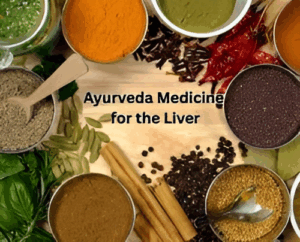In today’s world of advanced healthcare, there is a growing interest in integrating traditional practices with contemporary treatments. The combination of Ayurveda and modern medicine offers a powerful approach to achieving optimal health and wellness. By blending ancient wisdom with scientific advancements, this holistic approach addresses not only physical ailments but also mental and emotional well-being.
Understanding Ayurveda and Its Principles
Ayurveda, one of the world’s oldest healing systems, originated in India over 5,000 years ago. Rooted in the concept of balance, it emphasizes the harmony between mind, body, and spirit. The core principles of Ayurveda focus on:
- Individualized Care: Treatments are tailored to each person’s unique constitution or “Prakriti.”
- Natural Remedies: Herbal formulations, dietary adjustments, and lifestyle changes are used to promote health.
- Preventive Focus: Ayurveda prioritizes prevention by maintaining equilibrium within the body.
When integrated with contemporary practices, Ayurveda and modern medicine can offer comprehensive care tailored to individual needs.
The Science Behind Modern Medicine
Modern medicine, often called allopathic medicine, is rooted in evidence-based research and advanced technology. It excels in diagnosing and treating acute conditions, managing chronic diseases, and performing complex surgical procedures. However, it sometimes overlooks the emotional and spiritual dimensions of health, which is where Ayurveda can play a complementary role.
How Ayurveda Enhances Modern Medicine
Integrating Ayurveda and modern medicine creates a synergistic model of care. Here are a few ways they work together:
1. Treating Chronic Conditions
Modern medicine effectively manages symptoms, but Ayurveda addresses the root causes of chronic ailments such as diabetes, arthritis, and hypertension. For instance, Ayurveda’s focus on detoxification and dietary changes can enhance the efficacy of allopathic treatments.
2. Stress Management
Stress is a significant contributor to many modern illnesses. While conventional medicine may prescribe medications for stress-related disorders, Ayurveda offers meditation, yoga, and herbal therapies to promote relaxation and emotional balance.
3. Boosting Immunity
Ayurveda emphasizes strengthening the immune system through natural remedies and lifestyle changes. This can complement vaccines and other preventative measures provided by modern medicine.
4. Enhancing Recovery
Post-surgical care and recovery can benefit from Ayurveda’s rejuvenating therapies, which aim to restore energy and vitality. Combining these methods ensures a quicker and more holistic healing process.
Benefits of Holistic Care
The integration of Ayurveda and modern medicine aligns perfectly with the principles of holistic care. Holistic care focuses on treating the whole person rather than just the symptoms of a disease. Here are some key benefits:
- Comprehensive Healing: Physical, emotional, and spiritual dimensions are addressed.
- Improved Quality of Life: Patients experience enhanced well-being and reduced stress.
- Sustainable Health Practices: Preventive measures reduce the likelihood of recurring illnesses.
- Personalized Treatment Plans: Both systems prioritize individualized care tailored to each person’s needs.
In regions like Dubai, where the demand for natural remedies is growing, suppliers such as a holistic care Dubai supplier play a crucial role in providing quality Ayurvedic products and services.
Practical Tips for Integrating Ayurveda and Modern Medicine
To maximize the benefits of this integrated approach, consider the following tips:
- Consult Professionals: Work with both a qualified Ayurvedic practitioner and a modern healthcare provider to create a cohesive treatment plan.
- Communicate Openly: Inform all practitioners about the treatments you’re receiving to avoid conflicts or contraindications.
- Adopt a Balanced Lifestyle: Combine Ayurvedic practices like yoga and meditation with modern therapies for a well-rounded routine.
- Educate Yourself: Learn about the principles of Ayurveda and how they complement contemporary treatments.
Success Stories of Integration
Many patients worldwide have experienced remarkable outcomes by combining Ayurveda and modern medicine. For instance:
- Cancer patients undergoing chemotherapy have reported reduced side effects when supplemented with Ayurvedic herbal remedies.
- Individuals with chronic pain have found relief through Ayurvedic massage and dietary changes alongside conventional pain management.
- People recovering from COVID-19 have benefited from Ayurvedic immunity-boosting practices during rehabilitation.
Conclusion
The fusion of Ayurveda and modern medicine represents a significant step toward a more holistic healthcare model. By addressing the physical, mental, and spiritual aspects of health, this integration ensures comprehensive care for patients. Additionally, with access to reliable suppliers like a holistic care supplier, individuals can easily incorporate Ayurvedic practices into their wellness routines.
Ultimately, the synergy between these two systems paves the way for a healthier future. Whether it’s through managing chronic conditions or enhancing recovery, the combination of these methodologies is transforming lives. In this context, Ayurvedic medicine plays a crucial role in bridging ancient wisdom with contemporary science, offering holistic solutions that truly resonate with the needs of today’s world.









